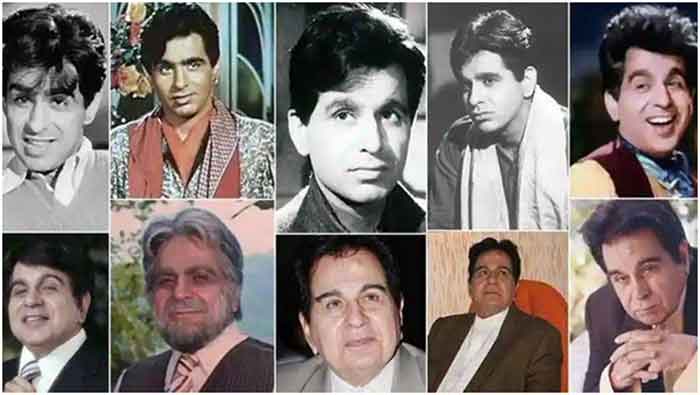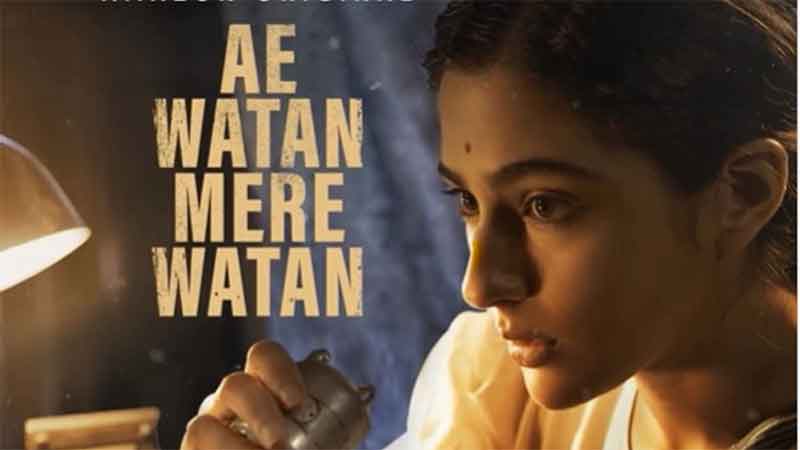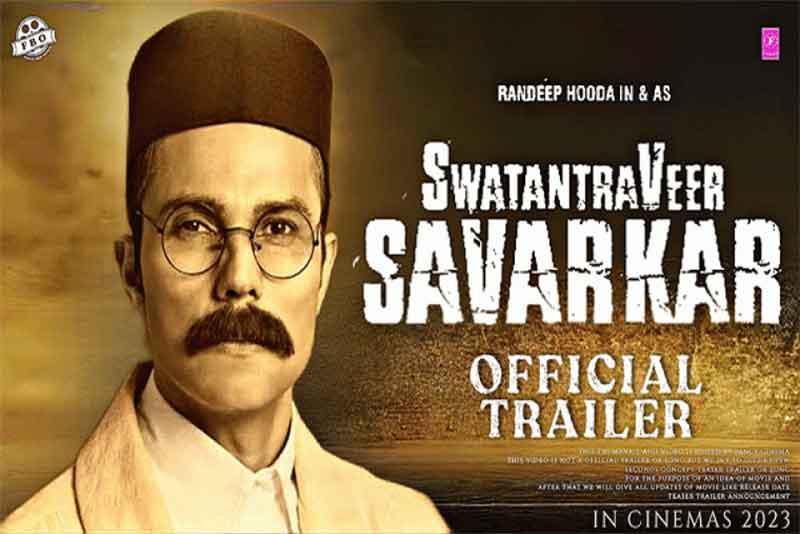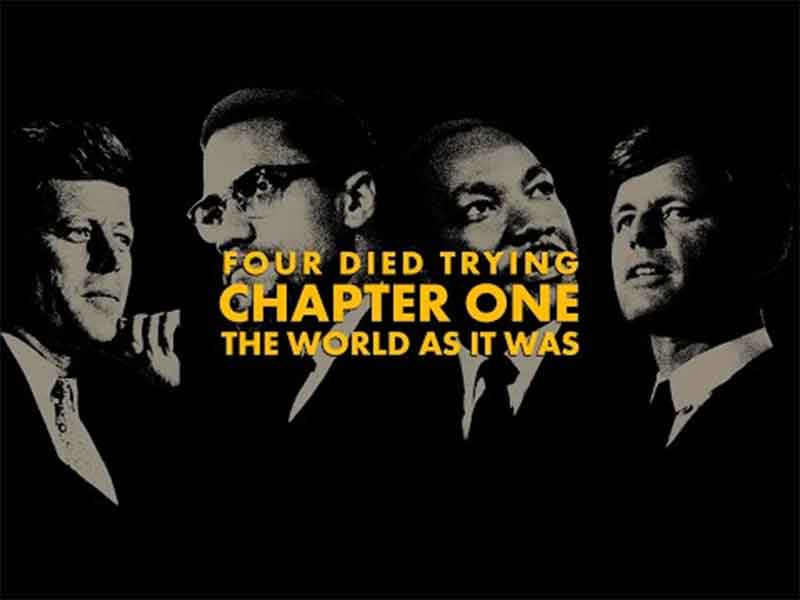
In the history of Hindi film industry no actor ever took intensity to such mythical proportions or regions as Dilip Kumar. In full flow Dilip Kumar could create the impact of an inferno or Tsunami .His acting possessed that rare quality of a genius, literally sculpting a new dimension to acting. No superstar looked as natural as Dilip Kumar, as though he never went to any acting school. Dilip Kumar is arguably the strongest contender for the choice of the best or most consummate Hindi film actor ever. Every great Hindi film superstar modelled himself on Dilip Kumar. He is alive till this very day, on the verge of turning 100.
Dilip championed tragedy in the depth of an Ocean, like no Hindi film actor ever did. Enacting tragic characters he put the audience in a trance, as though they were witnessing the darkest of winter days.However Dilip also had great flair for enacting comedy roles, creating the liveliness of the breaking of spring .Rarely did any artist display as much poignancy on the screen or express so much with the literal quiver of his eyes. He simply possessed acting prowess of surreal regions, like a Rembrandt canvas. He could one day resemble the deadest of leaves or the gloomiest of winner days. On another day he could resemble the brightest summer day or a lotus blooming fully. Within a role itself he could resemble water in a pot at its’ boiling point at one point and on the other freezing into ice. Dilip Kumar looked so engrossed when acting that it appeared as though he was manifestation of energy of the divine.
It could be contested that Dilip Kumar overdid tragedy in his day and lacked the liveliness of Dev Anand, the malleability of Raj Kapoor, the craft of Sanjeev Kumar or Naseeruddin Shah or the charisma of Amitabh Bacchan or Rajesh Khanna.Perhaps he expressed too much intensity and lacked detachment in the Brechtian mould, when performing. He could not vary his expressions like the notes of a musical orchestra or introduce element of ease or detachment in the manner of Sanjeev Kumar or Naseeruddin Shah.At times Dilip Kumar became over serious as though entrapped in a storm. He could not blend seriousness with humour like Raj Kapoor, or element of detachment with the finesse of Sanjeev Kumar. Arguably Sanjeev Kumar or Naseeruddin Shah got more into the skin of character or were craftier.
Still one must remember that overall Dilip enacted a wider and more challenging set of roles. than anyone Possibly he did not vary his acting style as much as he could have. Still for pure art or in a total package, Dilip Kumar was at the very top of the pedestal.. It must be mentioned that in some hits like ‘Ganga Jumna; ‘Footpath’ and ‘Naya Daur’ he broke away from the sad or mellowed trend, proving his versatility.
Comparisons may be unfair but even if more disciplined, charismatic or even intelligent, I would not rank Amitabh Bacchan as the equal of Dilip Kumar, as an actor or a human being. I am convinced that in his day Dilip Kumar overshadowed contemporaries, Raj Kapoor and Dev Anand.
It is noteworthy that in his best films heroine Vyjayanthimala co-starred with Dilip Kumar and not Nargis.Nutan ,Waheeda Rehman or Madhubala.This speaks of her remarkable acting prowess.
In contrast to Raj Kapoor the best of his films were not anti-hero films, being close to projecting radical change in social order but of man seeking justice within the system. Even in anti-hero portrayals like ‘Naya Daur,’ ‘Ganga Jumna’ he offers criticism to the oppressor but still reconciles. In the latter the hero is even punished for his actions.Dilip Kumar mainly projected Nehruvian themes which challenged casteism, religious superstition and economic disparity but did not endorse violent revolution. Raj Kapoor to a considerably greater extent in ‘Awara’ and ‘Shri 420’,portrayed the rebel in society.Inspite of not being apolitical the films of Dilip Kumar did not project the evils of the feudal or capitalist system.
We missed out witnessing Dilip Kumar in portrayals of an opressed man striving against injustice like Raj Kapoor in ‘Jagte Raho’ or Balraj Sahni in ‘Do Bigha Zamin.’ or even as a spiritual crusader like Guru Dutt in ‘Pyaasa’ Being such a star it became habitual to cast him in melodramatic films. I would have backed Dilip Kumar to act as well as any great actor in any truly progressive film, if not better. It could be stated that we saw more of Dilip Kumar as a star than as an actor. If his potential was completely untapped he may have overshadowed everyone as a pure actor.
I recommend every fan to read a biography of Dilip Kumar, narrating how he broke into acting, and the events that shaped his life. Being the son of Fruit stall owner one hardly forecasted he would emerge as an actor. It is also fascinating that he received psychiatric help to break away from state of depression, having been virtually habituated in projecting a melancholy state. It is also significant how he lost faith in Indian democracy after the 1992 riots .He was totally aghasted with the Mumbai riots of 1993 and earlier demolition of Babri Masjid. Infact by the late 1970’s he had become disillusioned with the Congress. It is praiseworthy that Dilip Kumar provided shelter for riot victims. I can never forget Dilip Kumar’s adherence to social causes, often being the mascot of the Muslim minorities. No doubt to me he was flawed in backing Nehruvian Socialism instead of radical revolutionary Socialism .Neverthless he exhibited considerably more social dignity than modern superstars.
BEST PERFORMANCES OF DILIP KUMAR CHOSEN IN MY ORDER OF MERIT
Best acting of Dilip Kumar in films in my chosen order of merit.
Devdas(1955)– Classic acting exhibition enacting tragedy in romance. Reminiscent of a manifestation of a God of tragedy with his heart touching expressions in a melancholy state.Intensity of expression in simply surreal realms which I doubt any actor would surpass. In the final scene when he is drowning sorrow in love he reveals godliness of very rare penetration. .The movie projects the social reality of Bengal.
Based on the Novel by Sharat Chandra Chattopadhyay called Devdas, the movie is the story of childhood sweethearts, Devdas (Dilip Kumar) and Paro (Suchitra Sen) set against the backdrop of rural Bengal during feudal times. When they decide to marry, Devdas’ father disapproves the relationship as they belong to a very rich family. He sends his son packing to Calcutta for higher studies. Parvati’s marriage is fixed with a wealthy zamindar, a widower with children older than his young second wife. In Calcutta, Devdas drowns his sorrows in alcohol and wishes to meet Paro one last time before he dies. He meets Chunilal (Motilal) who introduces him to an attractive and strong willed courtesan, Chandramukhi (Vyjayanthimala)
Ganga Jumna (1961)-A truly classical portrayal of a villager who turns into a dacoit symbolic of a crusader against injustice betrayed. One of the most natural displays of acting of a villager ever by an actor. Dilip Kumar deploys the most subtle nuances. Rarely has an actor been more in the thick of the very skin of the character. In most intense scene conjures up vibration s of a Tsunami erupting.
In contrast to his general melancholy expression in many movies, he is far more lively and radiant here. Most artistically portrays the inner metamorphosis or spiritual change within a person due to circumstances that turns his entire life around. The variance of his expressions reminds one of an orchestra. Brilliant chemistry with Vyjayanthimala. His dialogue pleading for justice with the police inspector towards the end is one of the most touching ever in Hindi cinema. Ironic that in the climax he is killed by his very own brother who is a police inspector. Here he glorified the anti-hero or crusader against injustice in depths he never did, or in regions rarely surpassed in Hindi films.
Daag(1952)-Mastery in tragedy .Very close to his performance in Devdas when drunk. So penetrative that looked like a person meditating. Simply poetic expressions. Classically portrays flux of frustration or despair for the major part of the movie with happiness and joy in the climax.
Shankar (played by Dilip Kumar) and his mother live a life of poverty. To earn money he makes and sells mud toys. Being the lone bread winner of the family, he is unable to meet the needs. His debt starts rising higher and higher when he gets addicted to alcohol. He is attracted to Parvati (Nimmi), who also lives a poor lifestyle along with her step-brother, Jagat Narayan, his wife and their daughter, Pushpa. After an argument with his mother, Shankar departs to the city, gives up drinking and earns a lot of money. He then returns home and pays off his mortgage. With new confidence he proposes to marry Parvati. But he is then told that Parvati’s marriage has been arranged elsewhere. Broken, he starts drinking again and his mother also dies at this stage. Now he again starts drinking heavily and starts walking on the path of self-destruction. The only thing which can save his life is Parvati’s love. But her parents are the only obstacle who are in the view that drunken Shankar can never become a good man in life. In a dramatic turns of events, Jagat Narayan agrees to marry Parvati with Shankar, Shankar quits alcohol and the film finally finishes with a happy ending.
Naya Daur(1957)– Portrayed a villager waging a battle against the infiltration of sophisticated machinery in his village .He symbolised the aspirations of common farmer penetrating into the very skin of the character. His confrontation with Jeevan as Kundan on the issue of technology was truly classical and so was his leading a rally of farmers. It is remarkable how he portrays the crystallization of rebellious spirit. Similar acting to Ganga Jumna. It portrays theme of Nehruvian Socialism, like no other film.of it’s era.
The tongawalla Shankar and the woodcutter Krishna are best friends in a poor village. At a train station, Shankar meets Rajni, who arrives there with her mother and brother, and fall in love with each other. At the same time, Krishna also sees Rajni and falls for her.
Kundan from the city arrives at the village and wants to modernize and mechanize the business which he does so by getting an electronic saw thus making several workers at the mill lose their jobs. When Shankar and Krishna both come to know that they both love Rajni, they plan on deciding on who will marry her; if Rajni offers white flowers when she goes to the temple, she will marry Shankar and if she offers yellow flowers, she will marry Krishna. Manju, Shankar’s sister who is in love with Krishna, hears the conversation and stealthily switches Rajni’s yellow flowers with white flowers at the temple. Krishna, who sees Manju switching the flowers, thinks that Shankar has told her to do this and it leads Krishna and Shankar into a fight. The saddened Shankar tells Rajni that he will not looked at her if he knew that his friend also lover her. Rajni becomes heart-broken after hearing this tells him that she can not change her feelings for him, but he can if he wants and goes away.
Kundan introduces a bus in the village thus taking away the tongawalas’ livelihood. They ask him to remove it, but he refuses. Shankar says that what he has done is for the betterment of himself only. Kundan, however, tells Shankar that if he can drive his tonga faster than the bus then he will remove the latter. Shankar agrees to do it but the rest of the tongawalas tell him not to as the bus will be faster. Shankar consents to the race and asks time for three months to prepare for the race. He makes a plan to build a road, which is six miles shorter than the road which leads to the temple. The disturbed villagers tell Shankar that they has gone mad with his stubbornness and do not support him with the making of the road, letting him do it alone.
Shankar starts to lose heart when he starts to build the road alone, but Rajni joins him, saying that she will always be with him, which makes Shankar happy. Soon, the rest of the tongawalas join them to build the road. Krishna joins Kundan’s side and asks him to help to make sure that the road does not get complete. The villagers, all together, overcome difficulties along the way and finally finish the building. Krishna decides to take things up in his own hands and breaks the bridge made by the villagers which was the most important path of the road. Manju sees him doing this and confronts Krishna and tells him that she changed the flowers on her own and not on the words of her brother as she loves him. Krishna on hearing this realises his mistake and starts repairing the bridge immediately with the help of Manju.
Finally, the race takes place with Shankar emerging as the victor. Krishna comes to congratulate Shankar and both the friends make up with each other furthermore Shankar and Rajni untie while Krishna and Manju unite with each other.
Madhumati(1958)-His acting was responsible for giving the cutting edge in making this movie an epic. Rarely have I seen an actor in such a state of bewilderment or look so puzzled. Dilip Kumar looked like a person penetrating the deepest depth to solve a mystery in a love story with a theme of re-incarnation. In the climax when narrating the end of the story in a house cabin, his expressions remind one of man undeterred or unmoved, as though his quest for exploring a myth has not ended.
While driving his car on a rainy night, Anand’s car (Anand enacted by Dilip Kumar)breaks down, and he goes to seek shelter in a nearby house. It is here that he will find out about his previous birth, his true love, Madhumati, and how their ill-fated romance is going to effect his current life.
Directed by Bimal Roy, ‘Madhumati’ is a paranormal romance revolves around Dilip Kumar’s Anand, a modern man, and Vyjayanthimala’s Madhumati, a tribal woman, who fall in love with each other. However, due to the societal dissemination, they are unable to have a relationship during their lifetimes and are reincarnated.
Deedar(1951)-In his time unimaginable that an actor could give such life to the character of blind man., that too in a love triangle. Revealed the most subtle or sensitive expressions, like the flutter of petals of a flower. Brilliant portray of unfulfilled love with Nargis,married to Ashok Kumar.
Mughal e Azam(1960)– Enacting Prince Salim Dilip Kumar penetrates depths of an ocean in love .whether happy or sad. Rarely has a romantic dialogue or loves scenes been as captivating in a Hindi film. No other star could have done equal justice to such classic.
Footpath (1953)-Even as an anti-hero Dilip Kumar had classical shades. Brilliantly contrasts a corrupted man in search or worldly belongings at any cost to a reformed man, who wishes to cut the tumours of injustice in the climax. Very penetrative character expression at the climax, when regretting his patronising injustice.
The story is about black-marketeering in grains and medicines, a subject of perennial interest to everybody and of poignant importance to the poor and needy. The characters and drama are laid among the very poor, the homeless ones, the pavement dwellers, whence the picture derives its title. One of them, the central character, is a poorly-paid hack journalist named Noshu who lives, for lack of means, with his kindly elder brother Bani and Bani’s nasty wife, Minna. Powerfully attracted to a pretty young girl of the neighbourhood and wanting desperately to woo and win her, he decides to become a black-marketeer.
The path of the transgressor is laid with roses. He mints money, becomes a wealthy and a respected citizen, and has everything he hankered for in his new world of luxurious ease. It all turns to ashes in his mouth. His brother, who brought him up and who has lost his teacher’s job because he used the school’s money to finance Noshu’s first flutter, turns him out when he discovers what the money was for. So do his poor but honest friends.
With a hardened heart, Noshu goes his own way, becoming wealthier at each step. Awakening comes with the outbreak of an epidemic among the starving poor. With his racket in medicines, Noshu’s conscience stirs in him as he sees the people he loved agonize and die for lack of the drugs he is hoarding for peak prices. The climax comes in his soul when he rushes to his stricken brother’s side too late and arrives just as Bani breathes his last. Shocked into realization, Noshu repents, gives himself up to the police, denounces his companions in crime and goes to prison.
Shakti(1982)-Pitted against the other superstar Amitabh Bacchan, in the eyes of many judges Dilip Kumar won this round. As an inspector he is a crusader against injustice who ends up killing his very own son. Rarely have an actor’s eyes or expressions portrayed such intensity against injustice or conviction, even in the gravest of times. Movie proved Dilip Kumar was still a giant.
Mashaal(1984)-As a journalist he banged every nail in the wall tp bring criminals to the book. Even in his 60’s Dilip Kumar was as poignant as ever .Brings in the classical element of rawness as a crusader for justice.
Directed by the enigmatic Yash Chopra, ‘Mashaal’ focuses on Vinod Kumar, an esteemed, law-abiding citizen who embroiled in the dirt of corruption, turns to crime for exacting revenge. Adapted from Marathi writer Vasant Kanetkar’s play ‘Ashroonchi Zhali Phule’ (1966), the film explores the theme of family, crime, corruption and punishment. Kumar brilliantly personified his charisma and acting capabilities. With an ensemble cast, Kumar led by example. Steering back to tragedies, Kumar churned out an inspired performance with calibre, charisma and charm.
Andaz(1949)– Dilip Kumar is a total contrast to Raj Kapoor in a love triangle, portraying a tragic character. Still arguably a moral victor over Raj, in terms of pure sensitivity or romantic depth. In madness and sadness he penetrated depths which have been rarely surpassed on the Hindi film screen.
Neena (Nargis) is the spoiled daughter of a rich businessman (Murad). One day while horseriding she loses control of her horse and is rescued by a young man named Dilip (Dilip Kumar). Dilip instantly takes a liking to her and starts to frequently visit her house where he entertains her with his singing along with Neena’s friend Sheela (Cukoo). Nina’s father dislikes this; he tries to make her realise that spending so much time with Dilip is not wise, as Dilip might misconstrue their friendship as love. On the day of Sheela’s birthday party, Dilip realises he has fallen in love with Neena and tries to tell her. However, tragedy strikes on the same day when Neena’s father dies of a heart attack, leaving Nina devastated. Dilip comforts her and Neena gives him the responsibility of looking after her father’s business and staying in a spare room at her home. Dilip tries to confide in Neena about his feelings for her, but her fiance Rajan (Raj Kapoor) returns from London. Dilip is shocked that Neena had not mentioned that she was already engaged and in love. Rajan and Neena eventually get married, and Dilip finally reveals his true feelings for Neena on the wedding day. Neena is shocked by Dilip’s revelation as she thinks of him only as a good friend. Dilip tries to leave, but stays to avoid any suspicion from Rajan. A few years pass by and Rajan and Neena now have a daughter. On their daughter’s birthday, Dilip arrives with a present. Neena tries secretly to tell him that she does not love him and that he should leave, unaware that she has said all this to Rajan. Rajan accuses Neena of having an affair with Dilip and Dilip decides to clear Rajan’s misunderstanding. He confronts Rajan and tries to convince him he is wrong about Neena. In a fit of rage, Rajan hits Dilip on the head and walks out, taking his daughter with him. Neena comes to Dilip’s aid and tells a doctor to save him as he is proof that she has not cheated on Rajan. When Dilip awakens he is half mad and tries to molest Neena, insisting she really is in love with him. Neena shoots Dilip, killing him instantly, and is then imprisoned. Rajan testifies against Neena in court about her affair with Dilip and how she killed him to hide her infidelity. While Neena awaits for the judge’s verdict, Rajan tells his daughter that she is not coming back and tears up the doll that Dilip had given her on her birthday. Inside the doll he finds a letter Dilip had written for Neena, saying that Rajan is the fortunate one who she loves and he has realised this now. Upon reading the letter, Rajan realises he had been wrong about Neena’s infidelity and that Neena only loved him. The judge sentences Neena to life imprisonment and Rajan and his daughter come to see her before she is taken away.
Ram Aur Shyam(1967)-Dilip Kumar in a double role most surgically and artistically portrays the distinguishing features of 2 twins in a movie which narrates a story of how a set of circumstances split and then re-unite 2 brothers. Proves his mastery of enacting comedy.
Shaheed(1948)– Exuded spirit of patriotism at a crescendo no star would have done in his day adding emotional touch to the role of freedom fighter. Brings out aspect of the inner self of a revolutionary.
Harsh Thakor is a freelance journalist. Toured India, particularly Punjab .Written on Mass movements ,,Massline,Maoism on blogs like Democracy and Class Struggle and frontierweekly .An avid cricket lover too who has posted writings on blogs like Pakpassion Indian Cricket Fans and Sulekha.com.
GET COUNTERCURRENTS DAILY NEWSLETTER STRAIGHT TO YOUR INBOX















































